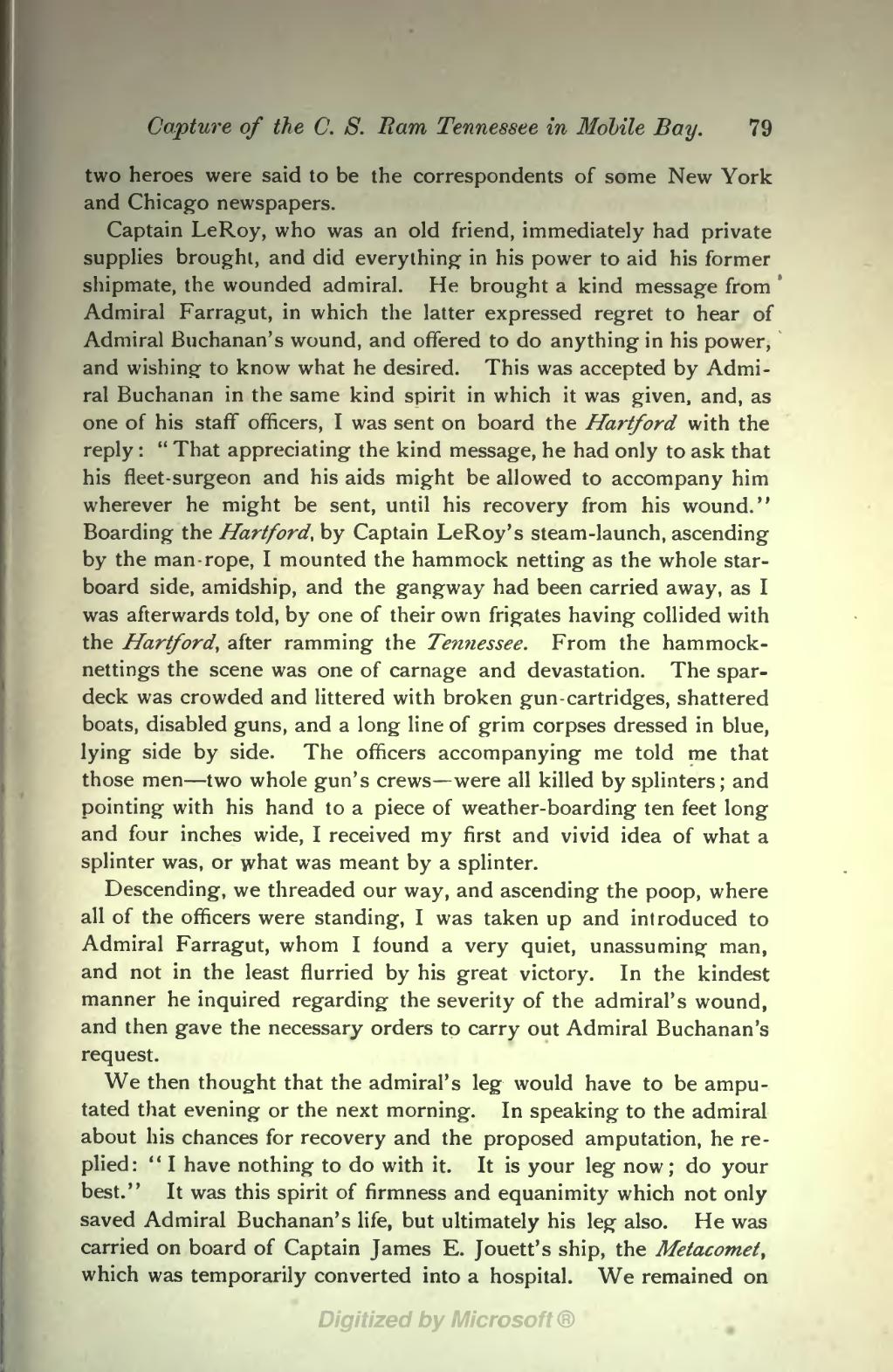Capture of the C. S. Earn Tennessee in Mobile Bay. 79
two heroes were said to be the correspondents of some New York and Chicago newspapers.
Captain LeRoy, who was an old friend, immediately had private supplies brought, and did everything in his power to aid his former shipmate, the wounded admiral. He brought a kind message from Admiral Farragut, in which the latter expressed regret to hear of Admiral Buchanan's wound, and offered to do anything in his power, and wishing to know what he desired. This was accepted by Admi- ral Buchanan in the same kind spirit in which it was given, and, as one of his staff officers, I was sent on board the Hartford with the reply : " That appreciating the kind message, he had only to ask that his fleet-surgeon and his aids might be allowed to accompany him wherever he might be sent, until his recovery from his wound." Boarding the Hartford, by Captain LeRoy 's steam-launch, ascending by the man-rope, I mounted the hammock netting as the whole star- board side, amidship, and the gangway had been carried away, as I was afterwards told, by one of their own frigates having collided with the Hartford, after ramming the Tennessee. From the hammock- nettings the scene was one of carnage and devastation. The spar- deck was crowded and littered with broken gun -cartridges, shattered boats, disabled guns, and a long line of grim corpses dressed in blue, lying side by side. The officers accompanying me told me that those men two whole gun's crews were all killed by splinters; and pointing with his hand to a piece of weather-boarding ten feet long and four inches wide, I received my first and vivid idea of what a splinter was, or what was meant by a splinter.
Descending, we threaded our way, and ascending the poop, where all of the officers were standing, I was taken up and introduced to Admiral Farragut, whom I found a very quiet, unassuming man, and not in the least flurried by his great victory. In the kindest manner he inquired regarding the severity of the admiral's wound, and then gave the necessary orders to carry out Admiral Buchanan's request.
We then thought that the admiral's leg would have to be ampu- tated that evening or the next morning. In speaking to the admiral about his chances for recovery and the proposed amputation, he re- plied: " I have nothing to do with it. It is your leg now; do your best." It was this spirit of firmness and equanimity which not only saved Admiral Buchanan's life, but ultimately his leg also. He was carried on board of Captain James E. Jouett's ship, the Metacomet, which was temporarily converted into a hospital. We remained on
